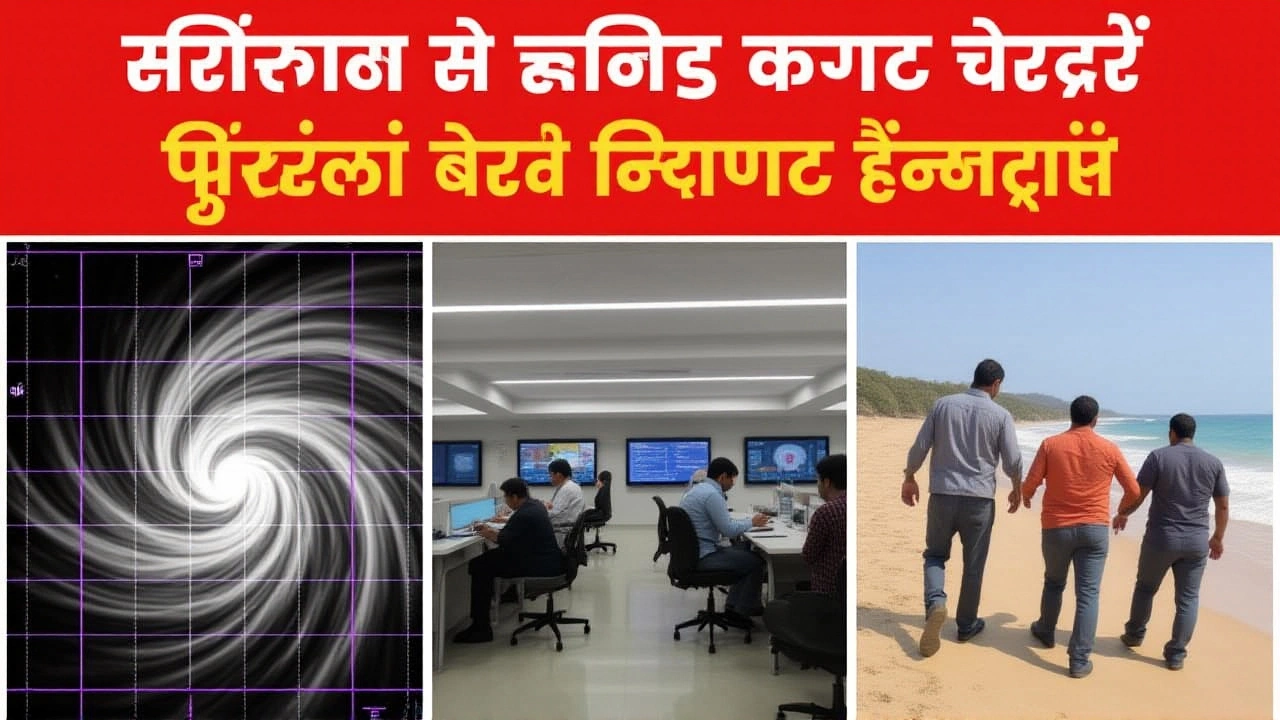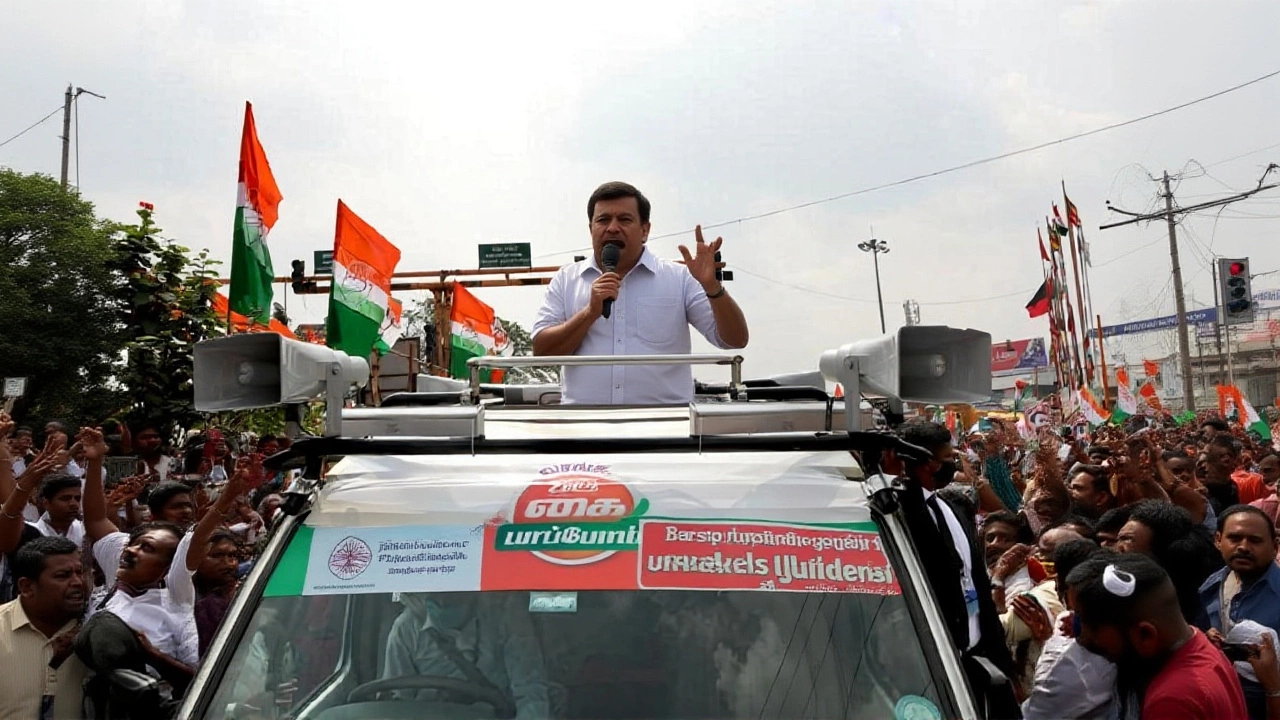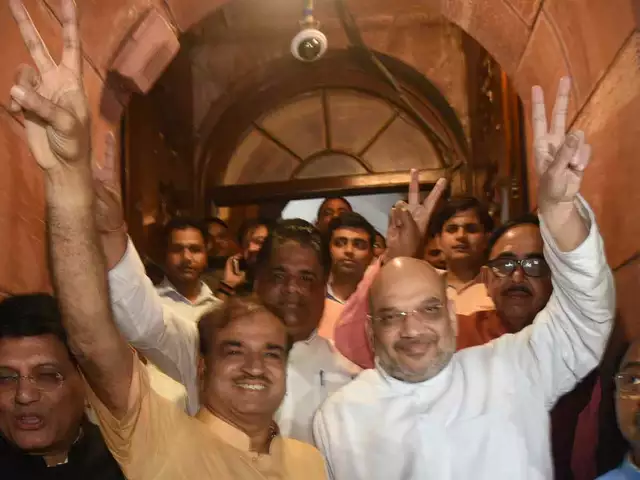When Rahul Gandhi stood before a packed press conference in New Delhi on November 23, 2025, his voice didn’t shake — but the weight of what he said did. Sixteen Booth Level Officers had died in just three weeks, he announced. Heart attacks. Suicides. Stress-induced collapses. All while they were scrambling through mountains of paper, trying to verify voter lists under a brutal 30-day deadline. "This isn’t reform," he said. "It’s imposed oppression." And with those words, the Election Commission of India found itself at the center of a political storm that had nothing to do with polls — and everything to do with power, paperwork, and people pushed to the edge.
The Human Cost of Paperwork
It’s easy to forget that behind every voter list is a human being. Someone who knocks on doors in 100-degree heat. Someone who walks miles with a clipboard, verifying addresses, checking IDs, chasing down missing documents. These aren’t bureaucrats in air-conditioned offices — they’re local volunteers, often retired teachers, retired police officers, or community workers. And now, according to Congress sources, at least 16 of them are dead.
The Election Commission of India launched the Special Intensive Revision (SIR) on October 25, 2025, aiming to clean up voter rolls nationwide before the next general elections. The goal? Remove duplicates, delete fake entries, and update addresses. Sounds reasonable. But the execution? A nightmare. The Commission gave states just 30 days to complete a task that, by its own admission in internal memos, normally takes 6–8 months. No digital tools. No centralized database. Just stacks of 22-year-old printed rolls — some weighing over 10 kilograms per booth. BLOs were told to cross-check every name against Aadhaar, ration cards, and utility bills — often with no internet access in rural areas.
"They were working 16-hour days," said a former BLO from Bihar, speaking anonymously. "We didn’t get paid overtime. We didn’t get water. We got threats from both sides — from people who wanted their names added, and from people who wanted others removed. Then, one by one, they just... stopped coming to work."
"This Is Not Incompetence. This Is a Plot."
Rahul Gandhi didn’t stop at mourning the dead. He went further. In a fiery Hindi post on X, he tied the SIR to a broader pattern: "If the intentions were clear, the list would be digital, searchable, and machine-readable." He pointed to Bengaluru’s Mahadevapura Assembly constituency, where voter numbers jumped from 275,000 in 2008 to 680,000 today — a surge driven by migration, not birth. Yet, he claimed, 11,965 names on the list were fake, 40,009 had incorrect addresses, and 10,452 people were registered at the same address. "This isn’t chaos," he said. "It’s a conspiracy."
His words echoed in West Bengal, where Chief Minister Mamata Banerjee demanded an immediate halt to SIR. Congress president Mallikarjun Kharge compared the drive to demonetization — "a top-down, chaotic imposition that punishes the honest." The BJP, meanwhile, dismissed it as political theater.
BJP’s Counteroffensive: Where Was Rahul Gandhi?
Just hours after Gandhi’s speech, the BJP struck back. Amit Malviya, head of the BJP’s IT cell, didn’t mention voter rolls. Instead, he asked: "Where was Rahul Gandhi on November 24, 2025?" That was the day Justice Suryakant was sworn in as Chief Justice of India at Rashtrapati Bhavan. Gandhi wasn’t there. Neither was Kharge. The BJP seized on it.
"He’s on a foreign tour," Malviya tweeted. "Or maybe a jungle safari," added spokesperson Shehzad Poonawalla, using the nickname "Rahul Baba" — a jab at Gandhi’s perceived detachment. The implication? Gandhi cared more about political attacks than constitutional duty.
But the timing was suspicious. Gandhi had just released a 12-page dossier on voter fraud in Karnataka. He was preparing for a nationwide campaign. Was he avoiding the oath ceremony — or was the BJP using it to distract from a deadly administrative failure?

Karnataka’s Congress Civil War
While Delhi burned, Karnataka’s Congress government was imploding. Chief Minister Siddaramaiah and Deputy CM D.K. Shivakumar — once allies — now appear to be at war. Sources say Shivakumar’s camp pushed for aggressive SIR implementation to target BJP-leaning neighborhoods. Siddaramaiah’s team wanted delays to avoid backlash. The result? A paralyzed state machinery. Local Congress leaders, including Vinoda, filed police complaints against alleged voter fraud — only to be rewarded with promotions. "It’s not about justice," said a senior Congress worker in Bangalore Central. "It’s about who controls the narrative."
Meanwhile, BJP leader Aravind Limbavalli pointed out the irony: "The very people accusing the ECI of fraud are the same ones who benefited from the old, unclean rolls in 2019 and 2024."
What Happens Next?
The SIR deadline is December 25, 2025. The ECI insists it’s on track. But internal emails leaked to The Wire show that 43% of districts in Uttar Pradesh, Bihar, and West Bengal have missed key milestones. Courts in Karnataka and Telangana have begun hearing petitions from citizens demanding a pause. The Supreme Court hasn’t intervened — yet.
What’s clear: The SIR isn’t just about voter rolls. It’s about who gets counted. Who gets heard. And who gets silenced — by exhaustion, by bureaucracy, or by politics.
Frequently Asked Questions
Why are Booth Level Officers dying during the SIR process?
Booth Level Officers (BLOs) are local volunteers tasked with manually verifying millions of voter records under a 30-day deadline — a task that normally takes months. Many work without pay, face threats from both sides, and lack digital tools. The physical and mental strain, especially in rural areas with poor infrastructure, has led to stress-induced heart attacks and suicides. At least 16 deaths have been reported since October 2025, according to Congress and local media sources.
What is the Special Intensive Revision (SIR) and why is it controversial?
The SIR is the Election Commission of India’s nationwide drive to clean up voter rolls by removing duplicates and fake entries. While the goal is legitimate, critics say the 30-day timeline is impossible without digital tools, forcing BLOs to rely on 22-year-old paper lists. Congress alleges it’s designed to exhaust genuine voters while enabling fraud. The BJP defends it as necessary, but admits implementation has been flawed.
Is there evidence of voter fraud in Mahadevapura, Bengaluru?
Congress leaders, including Rahul Gandhi, cited data from a 2025 audit claiming over 1 lakh names were illegally added to the Mahadevapura voter list — including 11,965 fake identities, 40,009 with wrong addresses, and 10,452 voters registered at single addresses. The Election Commission hasn’t confirmed these numbers, but the constituency’s voter count tripled since 2008 due to migration — raising legitimate questions about registration accuracy.
Why is Rahul Gandhi being criticized for missing Justice Suryakant’s oath ceremony?
BJP leaders accused Gandhi of ignoring a key constitutional moment — the swearing-in of the new Chief Justice of India — to focus on political attacks. Gandhi’s office said he was attending a scheduled meeting with BLO families affected by the SIR. The criticism appears designed to shift focus from the ECI’s controversial rollout to Gandhi’s perceived absence from national events, a tactic commonly used in Indian political discourse.
How is the SIR affecting state governments like Karnataka?
In Karnataka, the SIR has exposed deep rifts between Chief Minister Siddaramaiah and Deputy CM D.K. Shivakumar’s factions. Shivakumar’s camp allegedly pushed for aggressive purging to target BJP-leaning areas, while Siddaramaiah’s team feared backlash. The resulting paralysis has delayed local implementation, sparked internal complaints, and fueled BJP claims that Congress is "unable to govern." The situation mirrors similar tensions in other Congress-ruled states.
Could the SIR delay or disrupt the next general elections?
Not directly — the ECI has assured the final voter list will be ready in time. But if widespread fraud allegations surface after the SIR, or if courts order a recount, it could trigger legal chaos. More critically, if public trust in the electoral process erodes due to perceived bias or incompetence, it could lower turnout or fuel protests. The real risk isn’t delay — it’s legitimacy.






